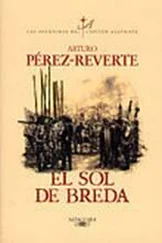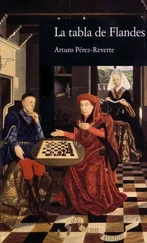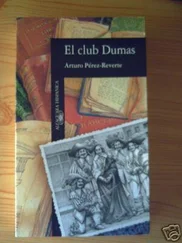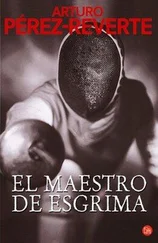Arturo Pérez-Reverte - Purity of Blood
Здесь есть возможность читать онлайн «Arturo Pérez-Reverte - Purity of Blood» весь текст электронной книги совершенно бесплатно (целиком полную версию без сокращений). В некоторых случаях можно слушать аудио, скачать через торрент в формате fb2 и присутствует краткое содержание. Жанр: Старинная литература, на английском языке. Описание произведения, (предисловие) а так же отзывы посетителей доступны на портале библиотеки ЛибКат.
- Название:Purity of Blood
- Автор:
- Жанр:
- Год:неизвестен
- ISBN:нет данных
- Рейтинг книги:3 / 5. Голосов: 1
-
Избранное:Добавить в избранное
- Отзывы:
-
Ваша оценка:
- 60
- 1
- 2
- 3
- 4
- 5
Purity of Blood: краткое содержание, описание и аннотация
Предлагаем к чтению аннотацию, описание, краткое содержание или предисловие (зависит от того, что написал сам автор книги «Purity of Blood»). Если вы не нашли необходимую информацию о книге — напишите в комментариях, мы постараемся отыскать её.
Purity of Blood — читать онлайн бесплатно полную книгу (весь текст) целиком
Ниже представлен текст книги, разбитый по страницам. Система сохранения места последней прочитанной страницы, позволяет с удобством читать онлайн бесплатно книгу «Purity of Blood», без необходимости каждый раз заново искать на чём Вы остановились. Поставьте закладку, и сможете в любой момент перейти на страницу, на которой закончили чтение.
Интервал:
Закладка:
It was a handsome spectacle for anyone not in danger of being burned alive. The green cross was installed above the platform, and on the fronts of the buildings were hung, in alternating sequence, the coat-of-arms of His Majesty and that of the Inquisition: a cross between a sword and an olive branch. Everything was rigorously canonical. The spectacle could begin.
They had brought us from our cells at six-thirty in the morning, between constables and the familiares of the Holy Office armed with swords, pikes, and harquebuses. We were led in a procession through the Santo Domingo plaza, down San Ginés, and from there, crossing Calle Mayor, into the plaza by way of Calle de los Boteros. Marching in file, we were escorted by armed guards and mourning-clad familiares carrying sinister black staffs. There were clerics in surplices, dirges, lugubrious drums, cloth-covered crosses, and masses of people in the streets. And in the center of it all, here we came. First, the blasphemers, then the bigamous; after them, the sodomites and the Judaizers and the followers of Mohammed; and last, the practitioners of witchcraft. Each group included wax, cardboard, and rag representations of those who had died in prison and those who were fugitives, to be burned in effigy.
I was near the middle of the procession, among the minor Judaizers, so dazed that I thought I was in a dream from which, with a little effort and great relief, I would awake at any moment. We were all wearing sanbenitos, long white garments the guards had dressed us in as they took us from our cells. Mine bore a red St. Andrew’s cross, but the others were painted with the flames of Hell. There were men, women, even a girl about my age. Some were weeping, and others were stone-faced, like the young priest who had denied at mass that God was in the host, the forma sagrada, and who refused to retract what he had said. One woman denounced as a witch by her neighbors, too old to stand on her own, and a man whose legs had been crippled during his torture, were riding mules. The most serious offenders were wearing cone hats, and all of us were carrying candles. Elvira de la Cruz was clad in sanbenito and cone hat, and when we were lined up, she was among the last. After we began to walk, I could no longer see her. I went with my head bowed, afraid I would see someone I knew among the people watching us pass by. As Your Mercies may imagine, I was mortified with shame.
As the procession filed into the plaza, the captain searched for me among the penitents. He could not find me until they made us climb up onto the platform and take a seat on the graduated steps, each of us between two familiares. Even then he had difficulty, for as I have told you I tried to keep my head down; in addition, the platform was easily seen from the windows, but the view of people standing in the arches was obstructed. The sentences had not yet been read publicly, so Alatriste was tremendously relieved when he saw that I was among the group of minor Judaizers, and not wearing the cone hat. That at least eliminated the stake as my possible fate.
Dominicans in their black-and-white habits could be seen moving among the black-clad constables of the Inquisition, organizing everything. The representatives of other orders—all except the Franciscans, who had refused to attend because they considered it a grave insult to be assigned a place behind the Augustinians—were already in their seats in places of honor, along with the Lord Chamberlain of His Majesty’s household and councilors from Castile, Aragon, Italy, Portugal, Flanders, and the Indies. Beside the Inquisitor General, in the area reserved for the Tribunal of Six Judges, was Fray Emilio Bocanegra, bony and malevolent. He was savoring his day of triumph, as Luis de Alquézar must have been, seated in the loge of the highest palace officials, close to the balcony where at that moment our lord and king was swearing to defend the Catholic Church and to persecute heretics and apostates who opposed the true Faith.
The Conde de Olivares occupied a more discreet window to the right of their august majesties, and was looking very grim. It escaped very few who knew the secrets at court that this entire performance was in his honor.
The reading of the sentences began. One by one, penitents were led before the tribunal and there, after a detailed recitation of their crimes and sins, their fate was announced. Those who were to be lashed, or who were being sent to the galleys, moved on, roped together; then those destined for the stake followed, hands bound. Those latter victims were said to be “relapsed”; for since the Inquisition was ecclesiastical, it could not shed one drop of blood, and in order to do lip service to the rules, the prisoners were said to have “fallen away” and were handed over to secular justice. Burning them at the stake prevented the profuse bloodletting of other measures. I leave Your Mercies to judge the unholy logic of that process.
These readings, the abjurations de levi and de vehementi— lighter and stronger recantations—were met with screams of anguish from those sentenced to unendurable punishment, resignation in others, and the public’s approval when the maximum penalty was applied. The priest who denied the presence of Christ in the host was condemned to the stake amid roaring applause and nods of satisfaction. After brutally scourging his hands, tongue, and tonsure as a sign that he was stripped of his sacred orders, his tormentors led him to the stake, which had been set up on the esplanade outside the Puerta de Alcalá. The old woman accused of witchcraft—of too easily finding treasures hidden by fleeing Jews and Moors—was sentenced to a hundred lashes, with the additional punishment of life imprisonment—and little that mattered, for such an elderly lady! A bigamist got off with two hundred lashes and exile for ten years, the first six to be spent rowing in the galleys. Two blasphemers received exile and three years in Oran. A cobbler and his wife, reconciled Jews, were sentenced to life imprisonment and a de vehementi abjuration. The twelve-year-old girl, a Judaizer, received a sentence of wearing an identifiable brown habit and serving two years of confinement, at the end of which she would be placed in a home with a Christian family to be instructed in the Faith. Her sixteen-year-old sister, a Judaizer, was condemned to life imprisonment without appeal. Their own father, a Portuguese tanner, had denounced them, under torture; he himself was sentenced to a de vehementi abjuration before being burned at the stake. He was the man who had been brought in on muleback because he could not walk. The mother, her whereabouts unknown, would be burned in effigy.
Accompanying the priest and the tanner on their way to the stake were a merchant and his wife, also Portuguese Jews, an apprentice silversmith—clearly a grievous sin—and Elvira de la Cruz. Everyone but the priest recanted in due form, and showed repentance. They would be mercifully garroted before being burned. The grotesque effigy of don Vicente de la Cruz, and those of his two sons, the dead one and the one who could not be found, were set atop long poles. His daughter wore the white sanbenito and conical hat, and in that garb was led before the judges to be read her sentence. With bone-chilling indifference, she recanted, as asked, all the crimes she had committed and would ever commit: being a Judaizer, a criminal conspirator, and violating a sacred place, among other charges. She looked totally forsaken up on that platform, head low, her Inquisitorial robes hanging like a sack over her tortured body. After recanting, she heard her sentence confirmed with resigned apathy. I was moved to pity despite the accusations she had made against me, or had allowed to be made. Poor girl, she was the victim and instrument of brutes without scruples or conscience, however much they paraded their God and their holy faith.
Читать дальшеИнтервал:
Закладка:
Похожие книги на «Purity of Blood»
Представляем Вашему вниманию похожие книги на «Purity of Blood» списком для выбора. Мы отобрали схожую по названию и смыслу литературу в надежде предоставить читателям больше вариантов отыскать новые, интересные, ещё непрочитанные произведения.
Обсуждение, отзывы о книге «Purity of Blood» и просто собственные мнения читателей. Оставьте ваши комментарии, напишите, что Вы думаете о произведении, его смысле или главных героях. Укажите что конкретно понравилось, а что нет, и почему Вы так считаете.











